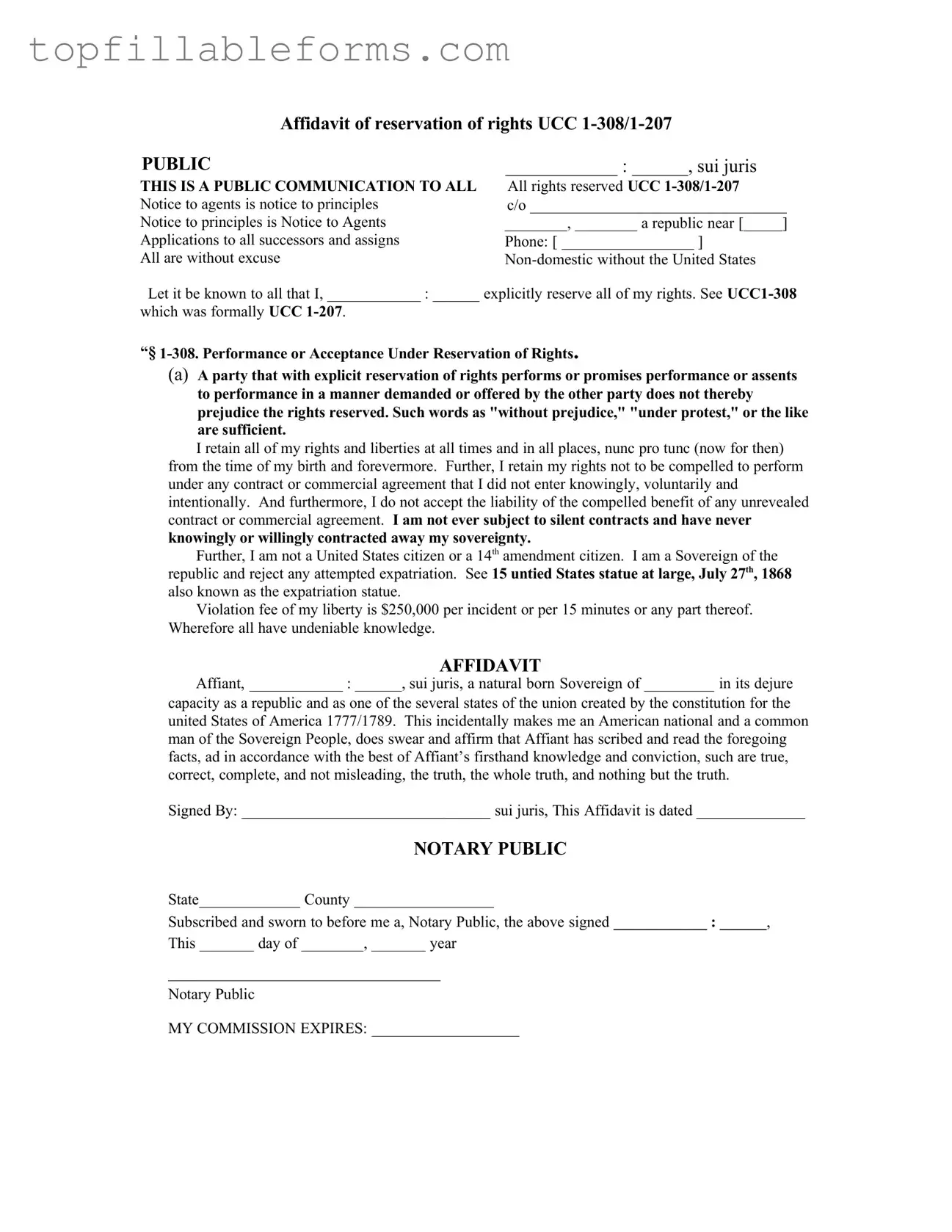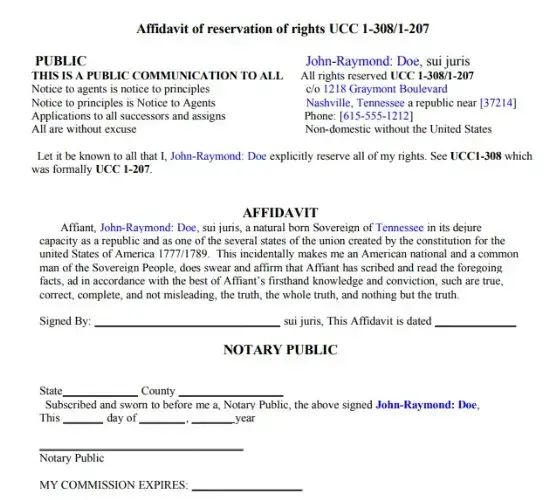Printable Ucc 1 308 Form in PDF
The UCC 1-308 form, also known as the Affidavit of Reservation of Rights, allows individuals to explicitly reserve their rights in legal and commercial agreements. This form is a public declaration that asserts a person's intention to retain all rights and liberties, particularly in situations where they may be compelled to perform under a contract. By utilizing this form, individuals can communicate their stance on their rights and sovereignty effectively.
Open Ucc 1 308 Editor Here

Printable Ucc 1 308 Form in PDF
Open Ucc 1 308 Editor Here
Finish the form now and be done
Finish your Ucc 1 308 online by editing, saving, and downloading fast.
Open Ucc 1 308 Editor Here
or
▼ PDF File

